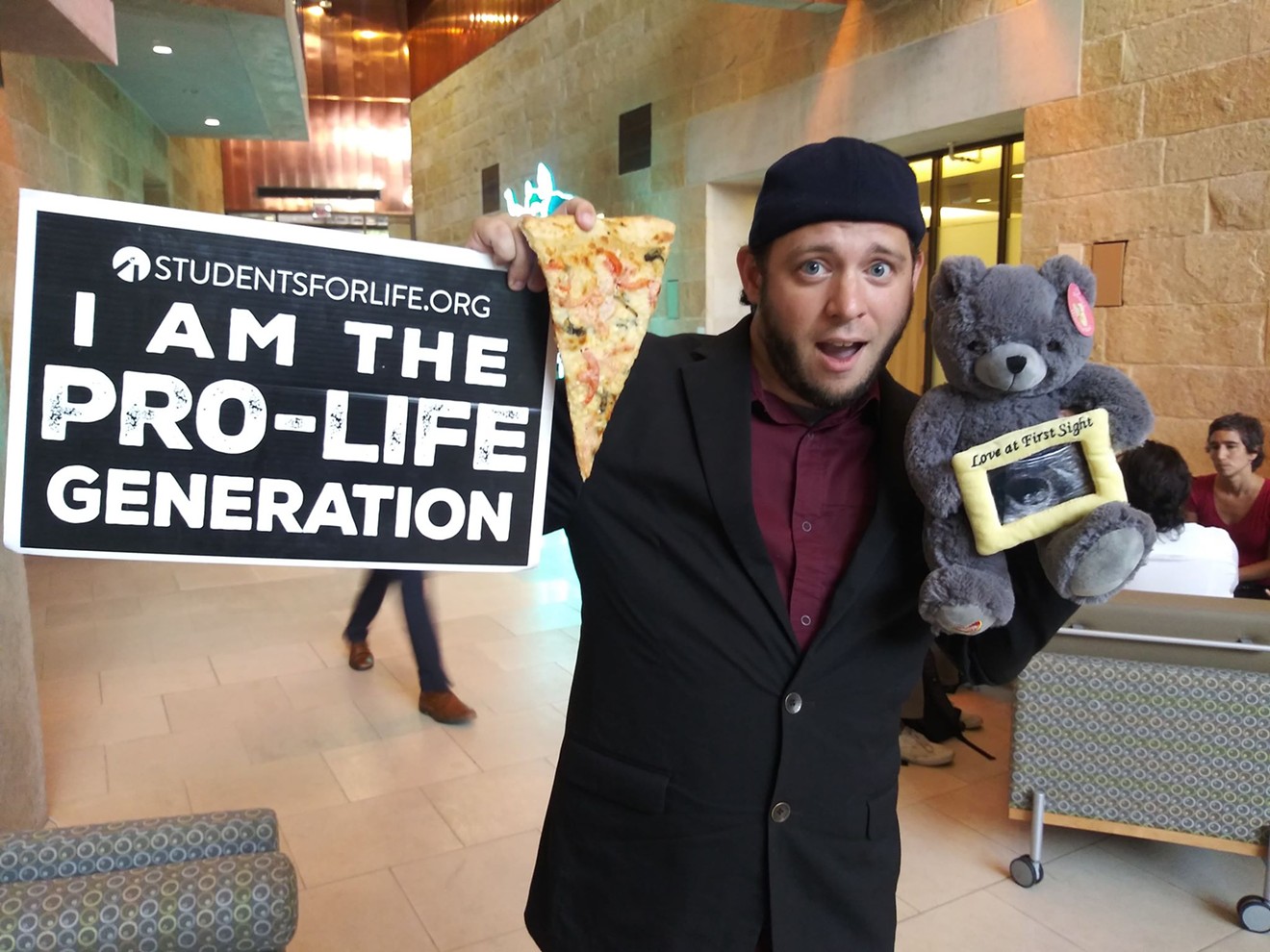That doesn't mean 2019 has been a year without new restrictions on Texans' reproductive rights. The biggest new threat to emerge in the legislative sessions' aftermath, according to Drucilla Tigner, the American Civil Liberties Union of Texas' reproductive rights political strategist, stems from Texas Senate Bill 22, which bans municipal governments across the state from partnering with entities that perform abortions, like Planned Parenthood, for any reason.
Abortion opponents have taken the bill as an opportunity to push for so-called "sanctuary cities" for the unborn — essentially, Texas Right to Life and its affiliates are badgering county commissioners courts and city councils to ceremonially ban abortion within their city or county limits.
An amendment to SB 22 from state Rep. Jonathan Stickland made it clear that the bill doesn't do anything to stop sanctuary city ordinances. That was music to the ears of ban proponents, according to Tigner.
"Functionally, (Stickland's amendment) doesn't do anything, but ... it emboldened folks like Mark Lee Dickson and other folks at Texas Right to Life to begin peddling these ordinances to cities all over Texas," Tigner says. "(The bans) are a very practical and direct effect of the policies that happen at the Capitol.""(The bans) are a very practical and direct effect of the policies that happen at the Capitol." — Drucilla Tigner
tweet this
None of the cities that have passed one of the ordinances actually has an abortion clinic, but Tigner says it's important to stop the movement before it takes hold in bigger cities, something Dickson told the Observer he was intent on earlier this year.
"Even if it's put for a vote in cities and their councilmen and their mayor votes against it — that shows where they stand and that encourages the people in those great cities — if they have elected people that don't reflect their values — to rise up and support people who will run in those offices that will represent their beliefs and values," Dickson said.
The ACLU has yet to file a lawsuit against one of the bans, but a legal fight is inevitable.
Beyond the sanctuary cities squabble, Tigner points out the Louisiana admitting privileges case headed for the Supreme Court as an important one to watch.
Texas passed an almost identical law in 2013. The Supreme Court struck it down three years later, but that didn't stop this edition of the court from taking it back up. If SCOTUS upholds the law, the floodgates could open for the 2021 session, Tigner says..
"This particular legislative and election cycle is really important," she says. "As long as there continues to be an anti-choice majority in both chambers of the Texas Legislature, we can expect things like a six-week ban or a total abortion ban to be heard in 2021. ... This is a critical point in Texas history and the history of the nation."












